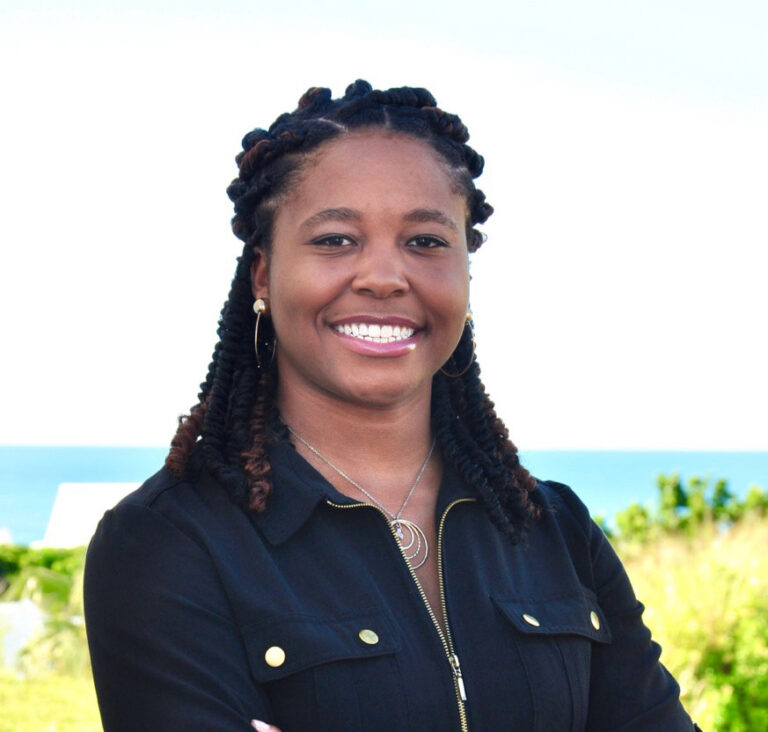by ROCKEL MUNDY
Wrapping up one’s studies during a pandemic isn’t easy – just ask successful scholarship recipient Ciara Burrows. The 26-year-old said one of the biggest obstacles in completing an Accelerated Bachelor of Laws degree at the University of Southampton, was trying to balance her studies along with other life priorities and commitments.
During the pandemic, Ms Burrows wasn’t able to do her regular extracurricular activities, such as martial arts. She also couldn’t meet in person as freely with her professors or peers. “That made learning more difficult because I couldn’t ask questions and interact in the same way online,” she said. “These challenges were exacerbated by the fact that for four months I had to complete my studies at a different time zone (four hours behind the UK) because of disruptions caused by a last-minute national lockdown in the UK.”
Despite these challenges, Ms Burrows said there was good news in terms of the scholarship application process for students. Due to the pandemic, there were numerous deadline extensions and more applications were being accepted online – making it easier than ever before. However, as all interviews were conducted online, it became much harder to build rapport with interviewers. “Overcoming technical difficulties, such as maintaining a stable internet connection and managing potential disruptions in the background (which are out of your control) were also factors that changed the ‘normal’ dynamics of the interview,” she said.
Ms Burrows learned many lessons during her studies but suggests one of her biggest was to not underestimate the importance of balance. “I didn’t realise just how crucial having those regular outlets helped alleviate many of the stresses associated with studying and being away from home. If I had to repeat the whole experience… I would have been more intentional about going outside, taking breaks away from the screen, and leaning into creative outlets like poetry, drawing, and reading,” she said.
The best advice Ms Burrows would give to anyone interested in following in her footsteps by successfully maintaining multiple scholarships, would be to create personalised structures and systems to help streamline and simplify the application process. She said applying for a single scholarship can be stressful, however, applying to multiple scholarships is very overwhelming and a recipe for burnout.
“My advice [to stay organised] is to, first, create a (handwritten or typed) master checklist, spreadsheet of deadlines for all the scholarships you would like to apply to and check it twice to make sure all deadlines are correct and in order. Secondly, use your preferred method of checking that each of the required documents has been prepared i.e color coding (green for complete, orange for pending, red for missing),” she mentioned.
“Lastly, ask for help. You can reach out to family, friends, and former scholarship recipients to ask for their advice and assistance in helping you prepare for certain applications or awards. I made a friend last year simply because she reached out on LinkedIn asking me for tips on a specific scholarship she was applying for that I had won previously.”
Ms Burrows admits that applying for a scholarship isn’t an easy process. “It can be both tedious and intimidating having to write and talk about yourself over and over again,” she said. “That’s why asking for help will help lighten the load. Ask for help updating your CV, organising/safeguarding important documents, like transcripts, practicing interview questions, and probably most importantly proofreading essays, cover letters, and CVs.”
That brings us to her golden rule when it comes to applying for scholarships: check everything at least twice. “Never underestimate the power of a couple innocent typos,” she said.
Ms Burrows encourages people not to “mirror anyone else’s experience at the expense of your own educational, professional, and personal goals”. Monetary value isn’t always the most important consideration when choosing which scholarships you apply to, she said. She believes for some, the longevity of a bursary/award (three/four years instead of one-year) and the ability to renew may outweigh the significance of securing more money upfront.
“Always balance the advice of others against those factors which directly impact you and your unique educational journey like academics, finances, support at home, access to mentorship, learning style, and personal mental health considerations,” she added.

